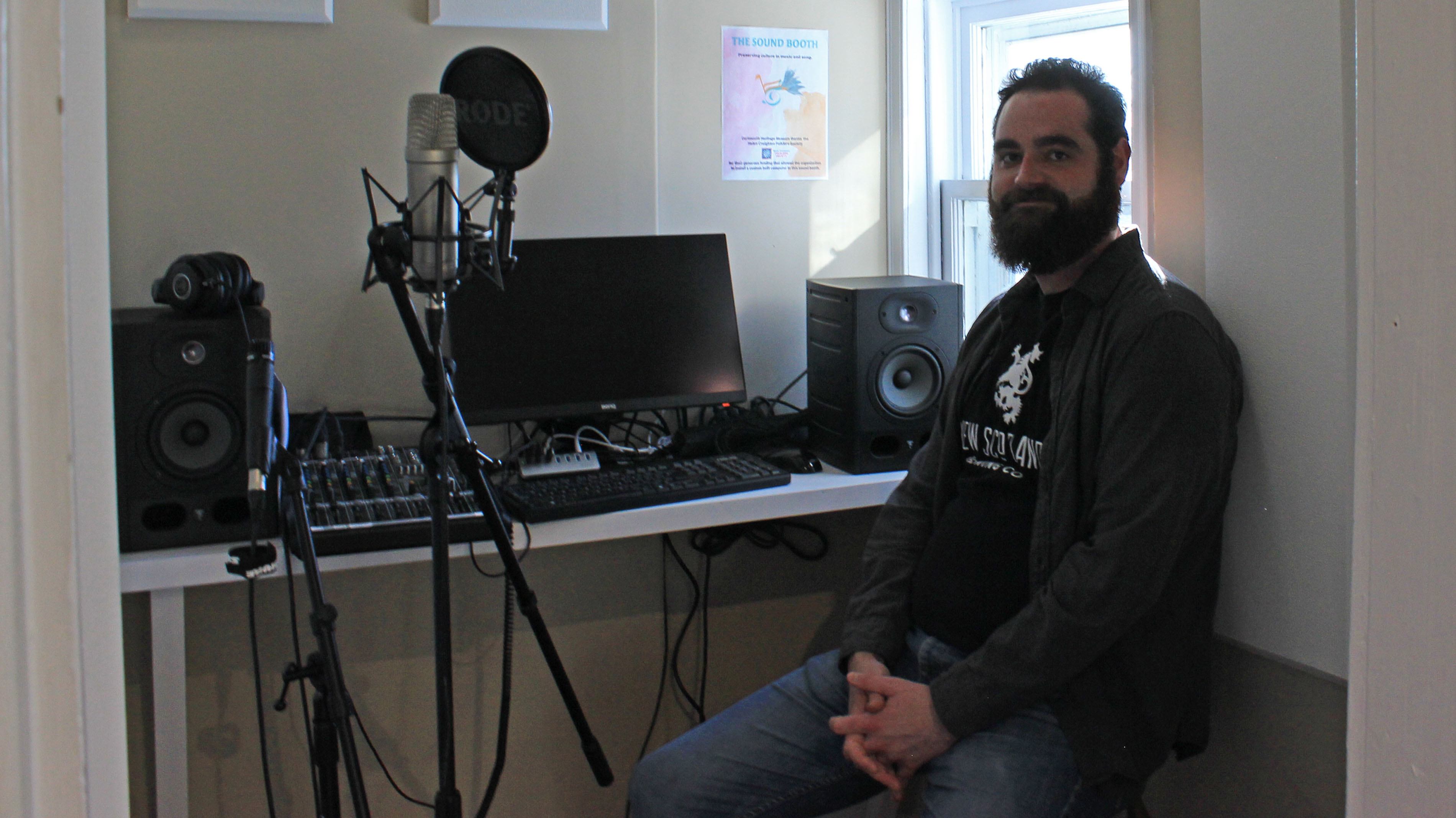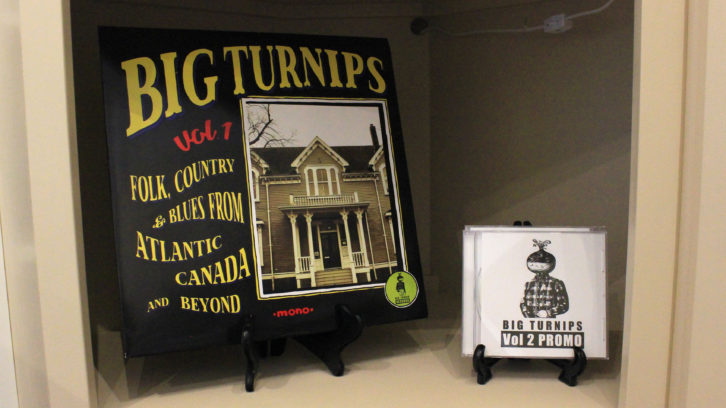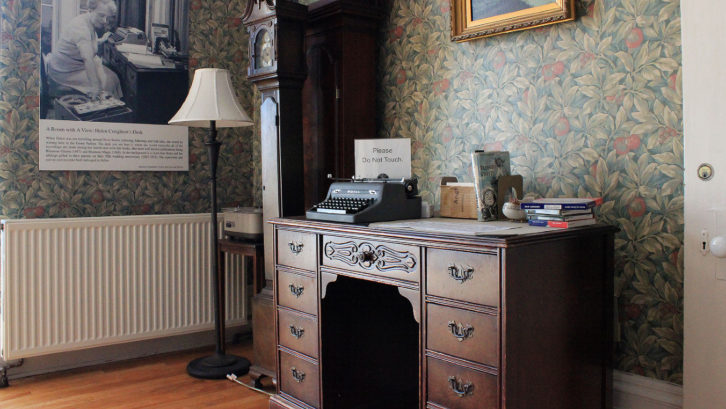Dartmouth folk music project bridges gap between past and present
Rooted in folklore, Big Turnips is a creative project aiming to collect and preserve music across the Atlantic

caption
Dylan Jewers sits in the small recording booth at Evergreen House where Helen Creighton lived. “As far as I know she never recorded anyone in the house, but she did all of her note taking here. It’s still all so wild to me.”A Dartmouth man’s project to revitalize traditional folk music has him following in the footsteps of renowned Canadian folklorist and fellow Dartmouthian Helen Creighton.
In 2017, Dylan Jewers started a music project called Big Turnips. Drawn to traditional music since he was a teenager, Jewers has spent the last three years exploring the world of folklore, recording and bringing old pieces to life. His first release, Big Turnips Volume 1, is a compilation album featuring songs and musicians from the region.
Digitally released last month and being released on CD in March, Big Turnips Volume 2 is a continuation of that work but more deeply embedded in folklore. It features local artists including Willie Stratton, Amy Lou Keeler, and David Bradshaw. Jewers also included Iranian musician Mohammad Sahraei, who moved to Halifax in 2017, and Ama Asubonteng from Ghana.
Jewers described himself as “obsessed” with his project.
“Generally when we say folk music we think of a white dude singing with an acoustic guitar, but it’s so much more. Not to say I don’t like white dudes playing guitar, but it can mean anything,” he said.
“It can mean someone banging on a stick and chanting. It can mean someone playing the nyckelharpa. It can mean someone standing in a room singing a 400-year-old song without any instruments at all.”

caption
Big Turnips Volume 1 and Volume 2 are displayed at the Dartmouth Heritage Museum. The first volume features Evergreen House on the cover.The project was inspired by the work of Helen Creighton, who spent most of her life in Dartmouth. Jewers first learned about Creighton from a friend almost eight years ago and said he’s been enamoured by her work ever since.
According to Jon Stone, chairperson of the Helen Creighton Folklore Society, Creighton collected more than 4,000 songs and tales from across the Maritimes. She did much of her archiving and notes in her home at Evergreen House, which is now part of the Dartmouth Heritage Museum.
“Folk heritage is not just something in the past,” said Stone.
“It is something very much alive and in the present as well. And that living folk heritage is what we see coming from the Big Turnips project. It’s a remarkable achievement.”
In a twist of fate, Jewers ended up visiting Evergreen House and meeting Terry Eyland, the manager and curator of the museum. After talking about the project, Eyland offered Jewers access to the small recording space they had built in the house.
All of the songs on Big Turnips Volume 2 were recorded in that studio, which isn’t much bigger than your average closet.
“As far as I know she never recorded anyone in the house, but she did all of her note taking here,” said Jewers. “It’s still all so wild to me.”
Jewers believes it’s important to continue Creighton’s legacy. He described his passion for the project as a mix of his interest in folklore and collecting old songs.
“And then to find out that someone was doing that actively for almost 50 years just up the road from where I was living was just… wow,” he said. “So then I kind of just went full tilt.”

caption
Helen Creighton’s desk in the Dartmouth Heritage Museum. Among the Creighton collection is the popular song, Farewell To Nova Scotia, which has since been recorded and made famous by numerous musicians.Heather Sparling is an associate professor of ethnomusicology at Cape Breton University and the Canada Research Chair in Music Traditions. She said projects like Big Turnips are valuable because they document cultural values and the ways in which people interacted with the world at different times.
“We tend to have this idea that tradition is something that never changes,” Sparling said in a phone interview.
“But in fact, healthy traditions always change. And so the idea of sort of modernizing a traditional song is very much in keeping with the ethos of tradition.”
For Jewers, folklore and recording these old songs isn’t necessarily about a great performance. It’s all about the content.
“I actually love the sound of terrible recordings,” said Jewers.
“There’s something about it. And the funniest thing about Creighton’s stuff is that the majority of her recordings are awful. The singers aren’t good singers, the quality isn’t very good, but they know the songs.”
Big Turnips Volume 2 has been a humbling and fulfilling project for Jewers, but he already has his sights set on the third volume.
For that compilation, he is hoping to record more songs and stories in different languages and from different cultures. He is also currently working on releasing a series of singles featuring local artists.
“All these people I get to work with now are just incredible,” said Jewers.
About the author
Alix Bruch
Alix is a journalism student at the University of King's College. She left a career in geology to play soccer professionally in Europe, before...
